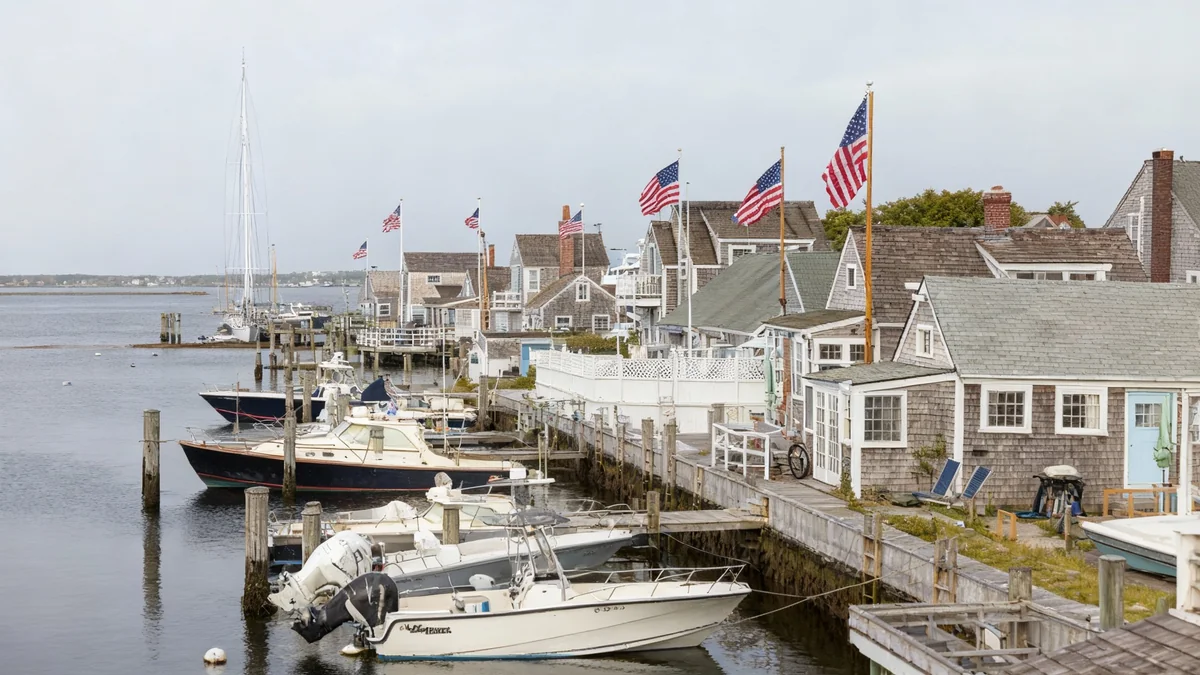Nantucket residents are preparing to vote on two critical measures that could reshape the island's housing landscape. On Election Day, local voters will decide between proposals aimed at either restricting or preserving the current short-term rental market, a decision with significant implications for both islanders and the local economy.
Key Takeaways
- Voters on Nantucket will decide on two housing measures.
- One measure seeks to limit short-term rentals to preserve housing for permanent residents.
- A competing measure aims to keep the island open to all renters, supporting the tourism economy.
- The outcome will affect property owners, local businesses, and the island's character.
Island's Future Hangs on Housing Vote
The upcoming vote represents a pivotal moment for Nantucket, an island known for its picturesque harbor and historic charm. The debate centers on how to balance the needs of its permanent residents with the economic benefits brought by seasonal visitors and property owners.
One proposal, backed by local groups, advocates for tight restrictions on rental housing. Supporters believe this measure is essential to ensure more real estate remains available and affordable for those who live and work on the island year-round. They argue that an unchecked short-term rental market drives up housing costs, making it difficult for essential workers and families to reside permanently.
Nantucket at a Glance
- Location: Island off Cape Cod, Massachusetts.
- Economy: Heavily reliant on tourism, especially during summer months.
- Housing Challenge: Balancing seasonal demand with permanent resident needs.
The Push for Rental Restrictions
Proponents of stricter rental limits point to the increasing difficulty for local families to find affordable housing. Many feel that the proliferation of short-term rentals has transformed neighborhoods, reducing the sense of community and pushing out long-term residents.
They argue that the current system favors investors and absentee owners over those with deep ties to Nantucket. Limiting short-term rentals, they believe, would help restore balance and preserve the island's unique character. This includes ensuring that teachers, firefighters, and small business owners can afford to live where they work.
"This isn't just about housing; it's about the soul of Nantucket," one local resident stated. "We need to protect our community for the people who make this island run every day, not just during the tourist season."
Maintaining an Open Rental Market
On the other side of the debate is a measure designed to keep Nantucket open to both long-term and short-term renters. This proposal is supported by a coalition of property owners and small businesses who emphasize the vital role of tourism in the local economy.
They contend that short-term rentals are a significant source of income for many islanders, allowing them to afford their homes and contribute to the local tax base. Restricting these rentals could lead to a decline in visitor numbers, negatively impacting restaurants, shops, and other businesses that rely on tourist spending.
Economic Impact
Tourism is a cornerstone of Nantucket's economy. Visitors drawn by the island's charm and rental options contribute significantly to local businesses, from restaurants and boutiques to ferry services and tour operators. Any change to the rental market could have ripple effects across various sectors.
Property owners often use income from short-term rentals to cover high property taxes and maintenance costs. For many, this flexibility is essential to owning a home on the island. They argue that an open rental market allows for a diverse range of visitors, which in turn supports a wider array of local services and amenities.
The Economic Stakes for Businesses
Small businesses on Nantucket are particularly concerned about the potential impact of rental restrictions. Many rely heavily on the influx of tourists during peak season to sustain their operations throughout the year. A reduction in short-term rental availability could translate directly into fewer visitors and, consequently, lower revenue.
Local shop owners, restaurateurs, and service providers have voiced their worries about the economic stability of the island if tourist numbers decline. They believe that maintaining a vibrant short-term rental market is crucial for the overall health of Nantucket's economy.
- Restaurants depend on seasonal diners.
- Retail shops thrive on tourist spending.
- Service industries, like cleaning and maintenance, benefit from rental properties.
Community Divided on Path Forward
The two measures highlight a deep division within the Nantucket community regarding its future direction. Both sides present compelling arguments, rooted in their vision for what the island should be.
The debate is not simply about housing; it encompasses identity, economic survival, and the balance between tradition and growth. Voters will weigh the desire to protect local residents from rising costs against the need to support a tourism-dependent economy.
The outcome of this Election Day vote will undoubtedly set a new course for Nantucket, impacting everything from housing prices to the character of its neighborhoods and the vitality of its local businesses.





